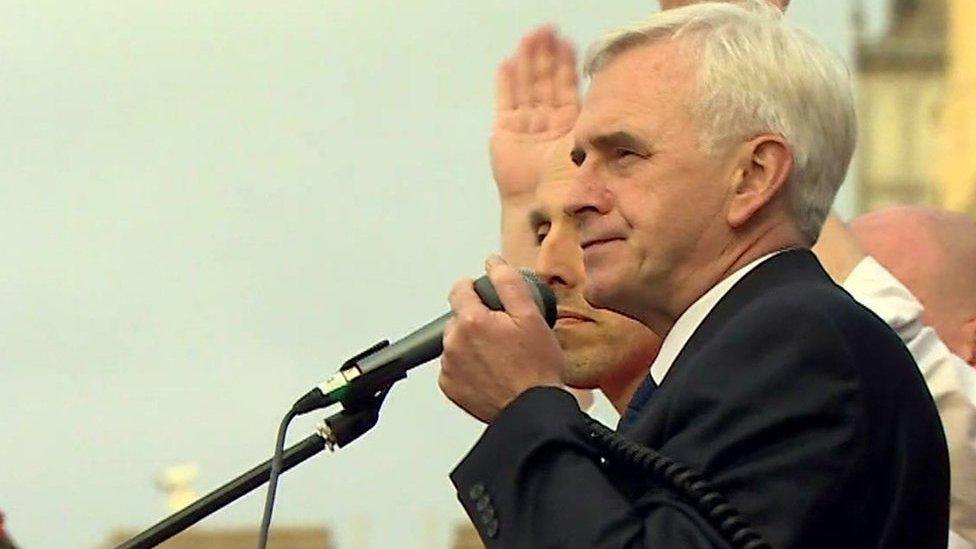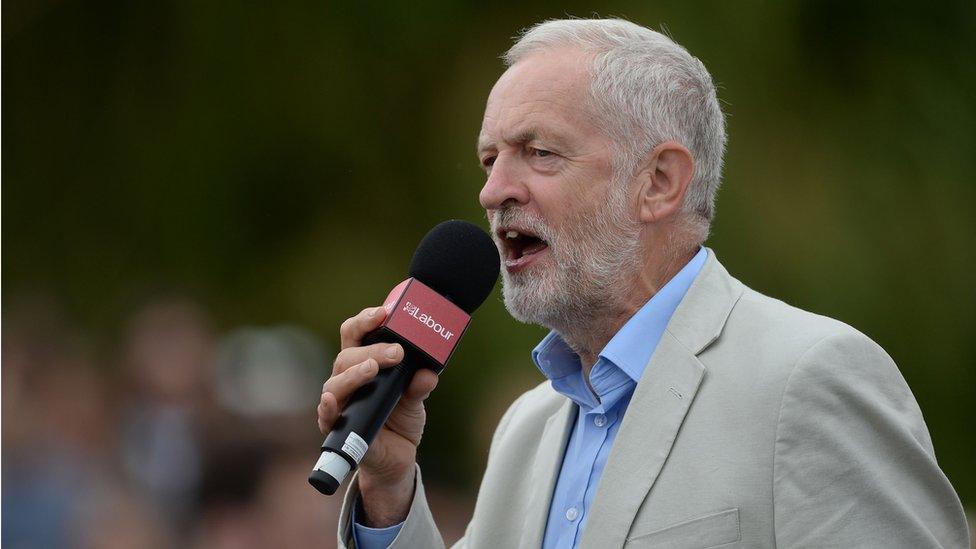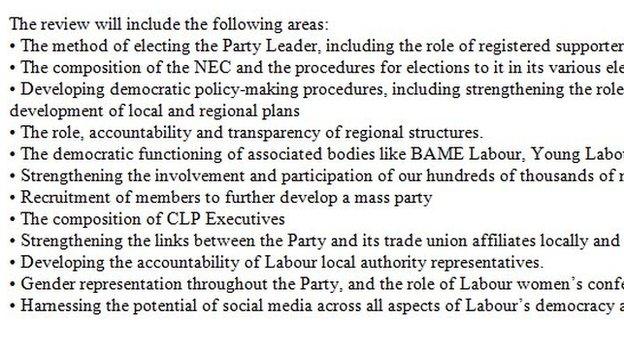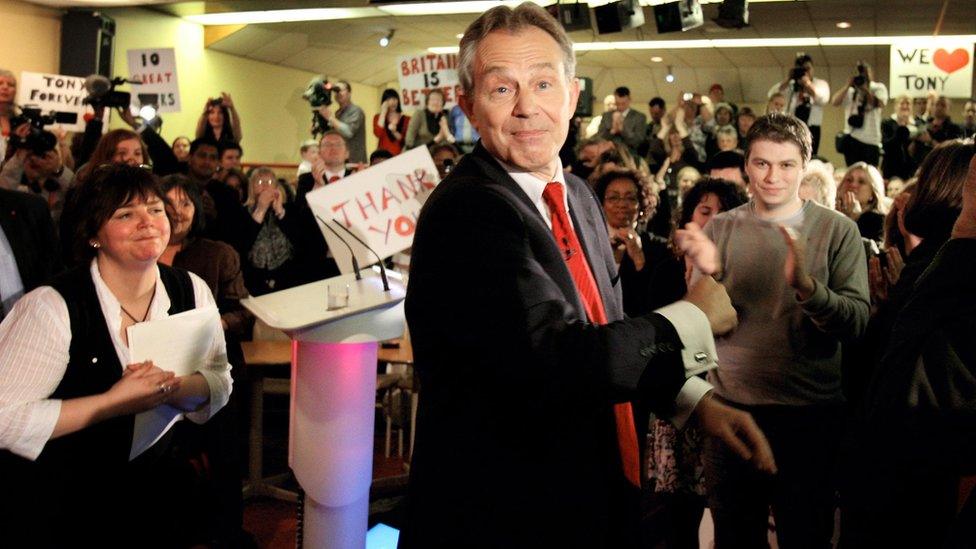Jeremy Corbyn's caution on Labour rule changes
- Published
- comments

Shadow chancellor John McDonnell does not have the support of some of his fellow MPs
The Labour leadership don't simply want to be prepared for the possibility of an early election.
With the recent manoeuvrings within government, they think it's increasingly likely.
And there was a danger that next week's Labour conference could have highlighted internal divisions rather than promoted unity.
Due for discussion was the so called "McDonnell amendment".
Opponents of the shadow chancellor named it after him to highlight how someone as unpopular as he is with his fellow MPs could be on a future leadership ballot if only 5% of parliamentarians nominated him. Currently, the support of 15% of Labour MPs and MEPs is required.
An 'interim' compromise
So Labour's ruling NEC has agreed a compromise.
The threshold to take part in future leadership elections would be reduced - on an "interim" basis - from 15% to 10% of Labour MPs and MEPs.
Opponents of Jeremy Corbyn don't really see this as a compromise at all.
They believe that a candidate as left-wing as Jeremy Corbyn could well be nominated by 10% of the parliamentary party (and opposed by 90% of existing MPs) and win the contest when the left-wing membership gets its say.
But it's unlikely they will have enough votes to defeat this when the final decision is taken at Labour's conference.

Jeremy Corbyn has kept his party on an election footing
Some on the left, however, including leading lights in Momentum, the group that formed out of the first Jeremy Corbyn leadership campaign, see this as too much of a compromise.
They think the left should take an historic opportunity to entrench its power. But the party leader is moving rather more cautiously.
So what we will see are attempts to tip the balance of power in the party machine more in his favour, without driving critics out.
The make-up of the ruling NEC will be altered, with three more members elected by the largely Corbyn-supporting grassroots.
However, as a sop to opponents, a new union place on the NEC is likely to go to Usdaw - which didn't back his leadership.
Long grass
The more controversial reforms will be "long grassed" until next year as part of a wider review of the party's rules and structures.
Jeremy Corbyn himself will present its remit to the NEC on Tuesday and propose that the former MP Katy Clark - firmly on the party's left but liked and respected more widely - will be in charge of the process.
However, I have been sent the terms of reference for the review, and understand that one of the totems of the left - mandatory reselection - won't be part of its remit.

The terms of reference of the review will not include mandatory reselection
For many years those who have wanted to see more power in the hands of left-wing members have argued that sitting MPs should have to - in effect - apply for their own job between each election.
They will be disappointed that Jeremy Corbyn doesn't appear to be intent on creating a PLP in his image.
MPs have Theresa May to thank for this. Her apparent vulnerability means that, practically, this wouldn't be a good time for a Labour leader to declare war on his parliamentary party.
But in truth, Jeremy Corbyn also believes the existing system can be used more effectively to unseat unpopular MPs.
Local constituency parties can re-adopt an MP on the nod but they also have the little-used power to ballot all party members in a particular seat on whether to open up the contest to challengers.

A return to the Blairite past looks increasingly unlikely
I am told that another demand by the left to water down Tom Watson's power by creating a second deputy leader post won't be explicitly included in the review, but that the process wouldn't preclude this from being discussed.
So don't expect to see revolutionary changes to Labour's structures today. Instead, there is likely to be another incremental shift in the balance of power away from MPs and towards both the party leadership and the more left-wing membership.
The changes wouldn't make a return to the Blairite past impossible - but it would be increasingly unlikely.
Richard Angell, the director of Progress - which calls itself Labour's "centrist pressure group" and is seen within the party as a Blairite outfit - is not impressed.
"We are now in a permanent campaign to undermine the role of MPs, marginalise their voice and get them to acquiesce," he says.
"Never before has a review of this kind been conducted from behind the closed doors of the leader's office."